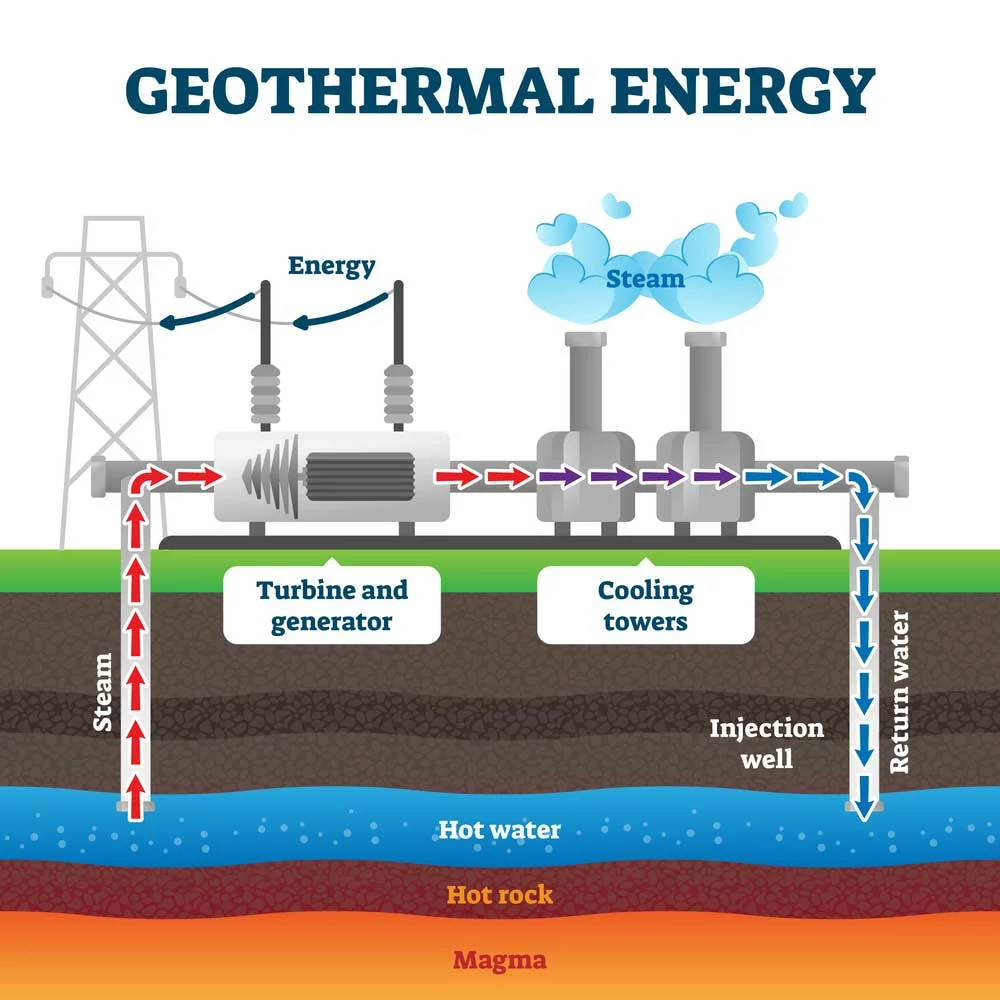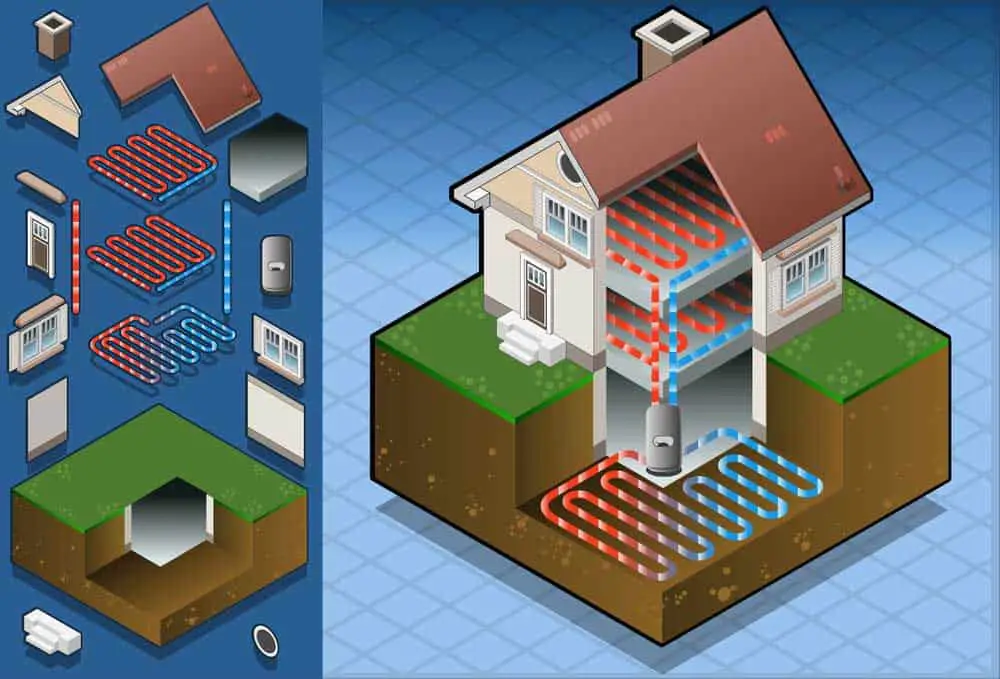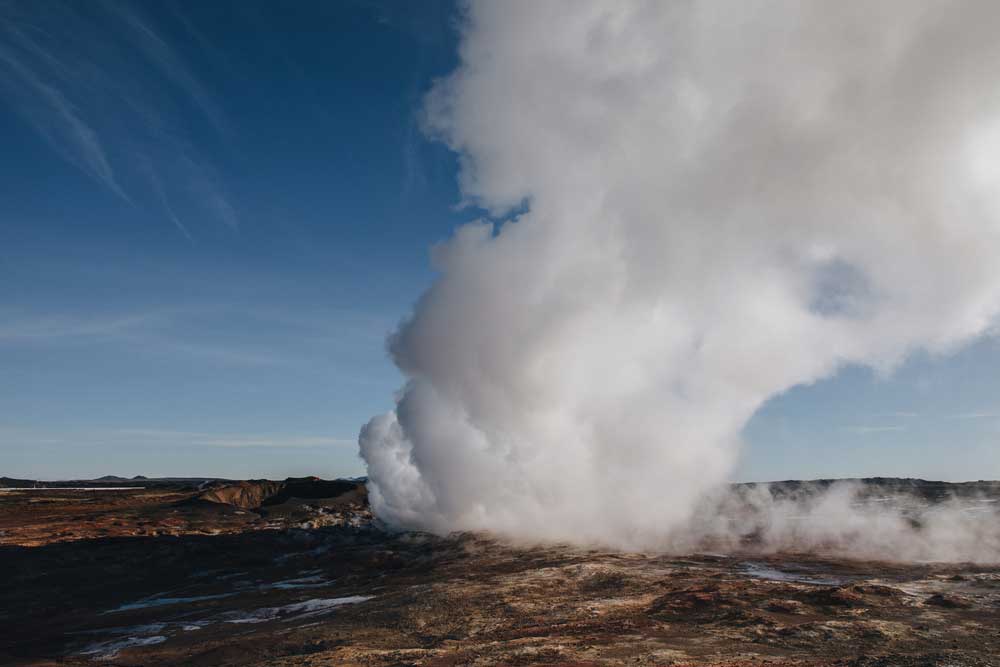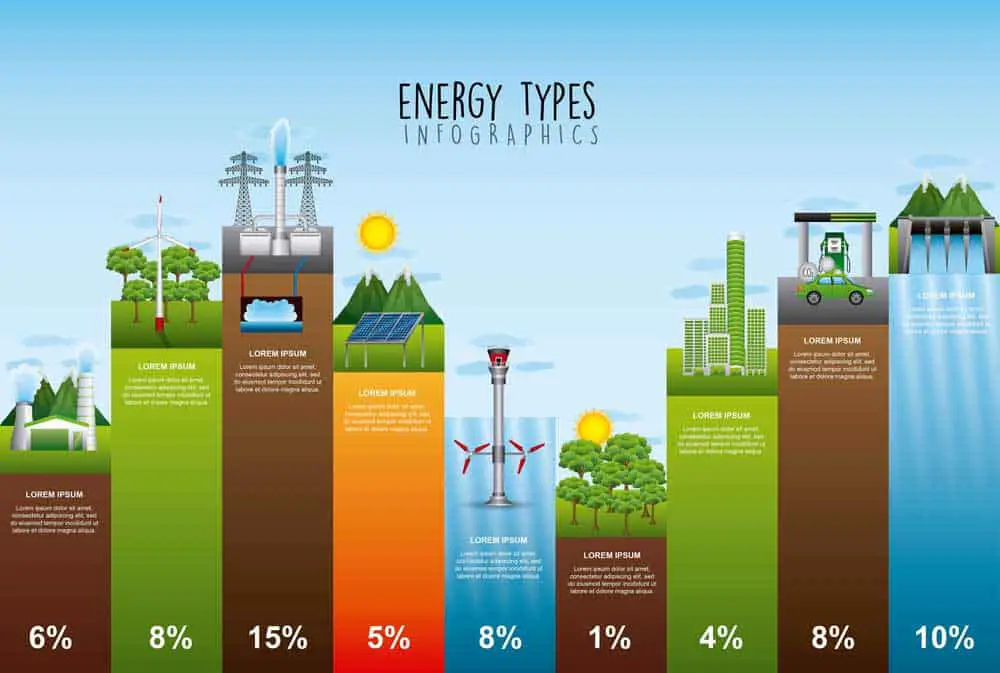Geothermal energy is one of the most beneficial forms of energy today. It is clean and renewable, just to mention a few advantages. Countries like Iceland are already championing it as the future solution to their ongoing energy needs. However, despite its numerous known benefits, it hasn’t taken the world by storm like solar energy. In this article, we have put together everything you need to know about this type of energy and help you make an informed decision.
What is Geothermal Energy?
Geothermal energy refers to renewable energy derived from the earth’s crust. The heat within the earth’s crust originated during planet formation and from the decay of radioactive materials several years ago.
The high temperature and pressure within the earth’s crust can melt some rocks to form magma. You can harvest the heat from magma and use it in various ways in your home or generate steam to turn turbines and produce clean energy on a large scale.
How Does Geothermal Energy Work?
You can capture and use geothermal energy through two systems: geothermal power plants and geothermal heat pumps.
Geothermal Power Plant
At the geothermal power plant, you drill a hole 1 to 2 miles deep into the hot water reservoir to pump steam under high pressure to the surface. The steam drives a turbine that turns on a generator to produce electricity.
The steam then cools in a cooling tower and condenses into water. You can then pump back the cool water into the reservoir to begin the process again.

Geothermal energy production example diagram
Geothermal Heat Pump
You can also tap geothermal energy through a geothermal heat pump and use it to do all sorts of things in your home. The system transfers heat by pumping water or a particular type of fluid called refrigerant through a loop of pipes located just below the earth’s surface.
During the winter, the water or refrigerant in the pump heats up, and you can use it to heat your building and warm your swimming pool and ponds, among other uses. During summer, the system can work reverse and help cool your home.

Heat Pump
Types of Geothermal Systems
There are different types of geothermal systems. However, we can broadly classify them as open geothermal loop and closed geothermal loop systems depending on the installation of the pipe.
Heat exchangers of most closed-loop systems transfer heat between the antifreeze solution and the refrigerant in the heat pump. On the other hand, an open loop system uses surface water or wells as a heat exchange fluid.
Closed geothermal loop systems include vertical, horizontal, and ponds, while open geothermal loop systems include ponds and standing wells. Your choice will depend on land availability, climate, soil condition, and local installation cost.
Pros of Geothermal Energy

Geothermal
Geothermal energy has several advantages compared to conventional sources of energy.
Renewable and sustainable
Geothermal energy is a renewable energy source that will be available as long as the earth exists. Renewable sources of energy are sustainable. This means it can sustain its consumption. Renewable energy comes from natural resources that naturally replenish once harvested. Conventional energy, such as coal and fossil fuel, expires.
Environmental Friendly
Geothermal energy is known to be safe in both the aspects of production and use. You don’t need to use fossil fuel to extract it from the earth’s interior, reducing this type of energy’s carbon footprint.
According to U.S. Energy Information Administration (EIA), it emits 99% less carbon dioxide (CO2) per megawatt-hour (MWh) of electricity generated. CO2 may impact the greenhouse effect, but the amount produced by geothermal power is much less than those of natural gas and coal.
Reliable Source of Renewable Energy
Geothermal energy is constant energy independent of any form of weather. Unlike solar and wind power, you won’t get a shortage simply because of the change in weather. It is available all year round and ranks at the top, way above other types regarding reliability.
In addition, geothermal energy has a high capacity factor. The actual power output is close to the total installed capacity. You can predict the power output of geothermal energy with much accuracy.
Significant Savings for Homeowners
Though the initial installation cost of a geothermal heat pump may be high, geothermal heating and cooling can save you a lot in the long run. You can save around 25-50% on cooling and 30-60% on heating, which can cover the initial cost within a few years.
Massive Potential
The global energy consumption from all sources is currently more than 17 terawatts (TW). Out of this, the world only delivers 12.7 gigawatts (GW) of electricity from geothermal power plants. This is because most geothermal energy is either difficult or unprofitable to obtain.
However, there is a lot of potentials, realistically between 0.035 to 2 TW. Countries like Iceland are already taking advantage of this potential, with Iceland being 100% sustainable – mostly from geothermal energy.
Disadvantages of Geothermal Energy
After all these benefits of geothermal energy, the main question remains, why aren’t many nations embracing it? Here are some of the cons of geothermal energy:
Expensive
Power companies are reluctant to adopt this energy mainly because of its high upfront cost. The amount it costs to get a geothermal power plant up and running is quite a lot.
Even the initial cost of installing a heat pump source in your home can be too much for some people. Installing a geothermal ground source heat pump is around £13,000 to £20,000. Air source heat pumps cost a little less, around £7,000-£11,000.
Cons of Geothermal: Surface Instability
Geothermal power plant constructions can affect land stability. A more enhanced geothermal system power plant can even trigger earthquakes. This happened in Newzealand in 2006 when an earthquake with a magnitude of 3.4 occurred due to geothermal power plant construction.
Cons of Geothermal: Environmental Issues
The interior of the earth contains greenhouse gases in abundance. Some of these gasses can escape the earth’s surface and the atmosphere, causing a greenhouse effect.
The geothermal power plant also emits small amounts of sulfur dioxide and silica. The reservoir can also contain traces of heavy metals such as arsenic, mercury, and boron. These substances are toxic to man and other living organisms.
However, the pollution associated with this type of energy is much lower than we witness with coal and fossil fuel.
Sustainability Issues
The management of the reservoir will determine the sustainability of geothermal energy. Studies have shown that you can deplete a geothermal reservoir when you remove the fluid faster than you replace it.
Remember, not all the steam condenses into the water; some escape into the atmosphere. It will help if you put more effort into injecting the water into the reservoir after the turbine generates electricity to balance.
FAQs
Cons of Geothermal: What are the Uses of Geothermal Energy?
The current geothermal energy uses include heating buildings, greenhouses, fish ponds, and drying crops, among other uses. Geothermal energy also generates electricity that can be widely used in industrial processes.
Cons of Geothermal: Is Geothermal Energy Renewable?
The geothermal energy source is an unlimited amount of heat generated in the earth’s core. That said, geothermal energy can be your source of energy as long as the earth exists.
Cons of Geothermal: Does Geothermal Energy Cause Pollution?
Geothermal energy is clean energy with very minimal pollution. It may emit some gasses, such as sulfur dioxide or CO2 but in very minimal amounts.
Summary

Energy types
Geothermal energy is a renewable and sustainable source of energy. It doesn’t necessarily require fossil fuels to run and emits far fewer pollutants to the environment than most forms of energy, including natural gas and coal.
However, geothermal energy isn’t perfect. Various cons keep this clean energy from taking the market with a swipe.
Getting a geothermal power plant up and running and the initial cost of installing a heat pump is high. Some countries also fear surface instability and its consequences.
We believe the innovations will make geothermal energy more effective and widely used with time.
